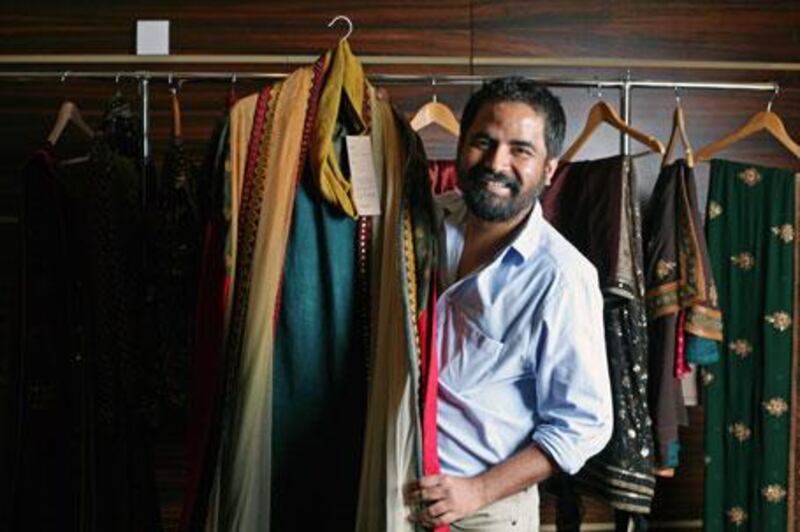In the past three years there's been an explosion with this brand. I'm still struggling to meet demands with sales; we're selling out faster than we can make things. But business is like flying a kite: just because you get a great response it doesn't mean you can expand overnight. Apart from womenswear, we have started doing jewellery, interiors and I'm just beginning to do kidswear and menswear.
We're still in phase one of expansion. Phase two will be to go slightly mass market and phase three will be to do lifestyle products. But fashion will always be my main priority because it made me who I am; that's the core brand. We opened the Delhi store last November, when Kolkata and Mumbai were supposed to open too. Now, Kolkata will open around mid-April, and Mumbai by the first week of May. I have a lot of customers in Dubai so maybe I should have a store there.
I came from a family where money was very important because we didn't have much of it. I lied to my parents and applied to a design school in Calcutta, never believing that I would get through. But then I made it and had to break it to my parents that I wanted to get into fashion. I used to look at it and wonder why people would spend such an obscene amount of money for something that's so stupid. It's great to have skirts that look like bubbles, but, still, the more I look at the fashion world the more I am starting to realise how silly it is.
Today, if I look at a woman who's completely obsessed with fashion, I find it repulsive. You're not wearing fashion; it's wearing you. It goes to show how unhappy some people can be that they try to clothe their unhappiness with big brands. I don't believe in doing clothes like that. I think somewhere down the line it is bringing a lot of unrest to society, and as creative people we need to maintain harmony somewhere. And when people are paying a packet, it's almost cruel to tell them that in six months you can't wear it.
I smelled the recession before it happened because suddenly everyone was getting too greedy with consumerism. Everybody was bringing out the It-bag. There was this mindless anarchy of people wanting to buy more and more, and I knew the market would crash one day. That's why I started focusing on India, because I knew that when the West crashed, India would become the new market. The West has a very consumerist mentality, but if you look at Indian philosophy, Indians consolidate and save. Very few live for the day, and they will always save for the future. So we've seen growth during the recession because it's a time of opportunities. It's not that people stop buying, it's just that they're more careful about what they're buying.
I don't like doing myopic collections. I have always liked travel-orientated collections because there's a little bit of the hippie in me. If you see my home, it is a little bit of everything from all over the world. So I like women who pick up things from everywhere. When I do something that's extremely modern, that's quite a departure for me. So when I do my hippie collections, which have a lot of subcultural context to them, that's when I'm happiest. When I started my career, I used to do these kind of clothes; there was an extreme amount of mix-and-match. Maybe a bit of Ossie Clark, a little bit of Dries Van Noten. And I am inspired by art, by three painters: Paul Gauguin, Frida Kahlo and Amrita Sher-Gil.
I have two types of client: one who's steeped in traditional things, and another who's travelled all over the world, so she's a little jaded and will only pick up a piece that's beautiful. And I have customer depth, which means the customer keeps coming back over and over again. I always watch out for that. The moment a customer doesn't come back, then I know I am deviating. The clothes aren't cheap but one of the reasons that people come and buy them in a frenzy is that they have the same kind of DNA as Chanel. When you buy something from them you know it will last 20 years. I think clothing brands need to understand that.
I have also designed clothes for seven films, but now I'm going to stop designing for other people's films because I want to do my own. Tom Ford has become quite the reference, hasn't he?










